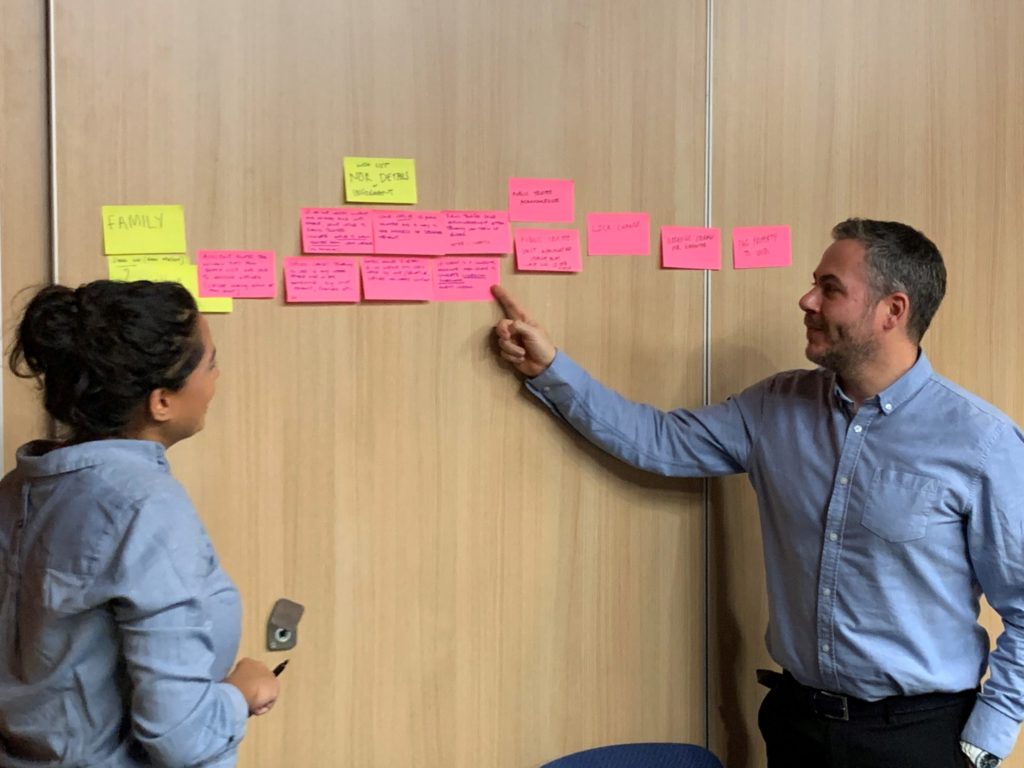Feedback
The team produced service blueprint maps for the existing service and a future service should the changes be implemented. Due to the nature of the findings, a spreadsheet containing Registration Online (RON) data was produced. As a next step, the team should produce a click through end to end prototype that meets identified user needs and can provide the users with required data in an accessible way.
The produced business case provides calculations for potential reduction in housing officer time spent on handling cases, the reduction in rent arrears and spend on temporary accommodation. A five year forecast provides an indication of potential savings for one local authority and for five of them. The team should consider providing a more accurate estimate on costs to implement the proposed solution and revise the benefits case accordingly.
The team produced a ‘how to’ guide aimed at helping other organisations to request registrations data from the General Register Office (GRO). A good overview of the Digital Economy act and Tell Us Once service is also provided in the appendix. As the team is still in the process of receiving the information from the GRO, they should continue to iterate the guides until the process is completed.
The recommendations report highlights the need to collect next of kin telephone numbers and publish the produced ‘how to’ guides. The report provides a high level view of how the recommendations can be implemented. The team should consider providing more detailed instructions on how the recommendations will be implemented by mentioned government departments.
The team undertook a number of different research methodologies, including one to one interviews and a reflective diary study. User research findings are well presented in the housing officer persona and pain points relating to the current process. The team should consider providing more detail on user research participants (number of people, roles, digital capability, etc) to make it easier for other local authorities to assess the applicability of the research to their own organisations.

 UK Ministry of Housing, Communities and Local Government (MHCLG)
UK Ministry of Housing, Communities and Local Government (MHCLG) 